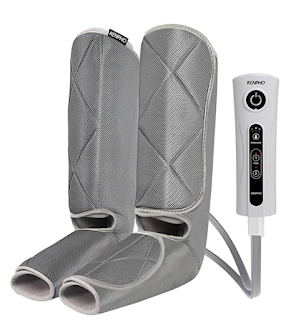How to Test Your Bathroom Scale for Accuracy
How to Test Your Bathroom Scale for Accuracy
When it comes to tracking weight loss progress or monitoring our overall well-being, we rely on bathroom scales to provide accurate readings. However, have you ever questioned yourself if you have an accurate scale? After all, it's not uncommon for them to gradually lose their precision over time, potentially leading to misleading measurements and frustration. Thankfully, there's no need to second-guess the reliability of your bathroom scale any longer. Let's go through the step-by-step process of testing one for accuracy. By following these simple yet effective methods, you can ensure that the numbers displayed on your scale truly reflect your weight, empowering you to make informed decisions about your health and fitness journey.
How Do Digital Bathroom Scales Work?
Digital bathroom scales work by utilizing a strain gauge and load cell to accurately measure weight. When weight is applied to the scale, the load cell deforms, a change detected by the strain gauge. The strain gauge then translates this physical deformation into an electrical signal processed and displayed as weight on the digital screen. Compared to analog scales, these scales are generally more reliable and accurate, providing consistent and precise weight measurements. However, common points of failure can include issues with the strain gauge or load cell, leading to inaccurate readings. Environmental factors such as temperature or humidity can also impact the accuracy of the scale. Additionally, improper calibration or damage to the scale can lead to unreliable measurements. Regular maintenance, calibration, and care can help mitigate these potential points of failure and ensure the accuracy of digital bathroom scales. Overall, when functioning properly, these scales provide a convenient and accurate way to monitor weight.
Why is Scale Calibration Important?
Scale calibration is important for several reasons. Firstly, it ensures accuracy in the measurements provided by the scale. Factors like regular use, temperature changes, and mechanical stress can affect a scale's performance over time, leading to inaccuracies. Calibration helps identify any discrepancies and ensures that the scale provides precise readings. Secondly, calibration helps maintain consistency in measurements, which is crucial when tracking health and fitness goals. By regularly calibrating the scale, you can rely on consistent and accurate readings, allowing for reliable comparisons over time. This is essential for making informed decisions and effectively tracking progress. Lastly, regular calibration can extend the lifespan of the scale. By identifying potential issues or malfunctions early on, timely repairs or adjustments can be made, preventing further damage and saving costs on replacements. Recalibrating your scale regularly also allows you to maintain accuracy.
If you don't know how to recalibrate your RENPHO Smart Body Scale, here's a link guide to help you


.png)
Comments
Post a Comment